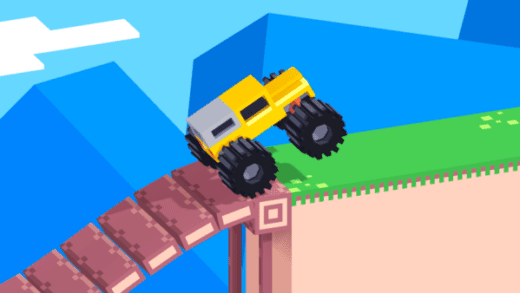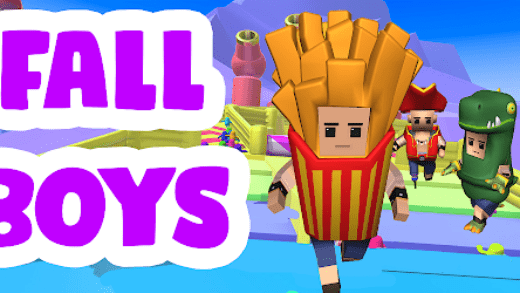Farm life has long fascinated children. Whether it’s the sound of a cow mooing or the joy of planting seeds, farms offer a natural playground full of learning opportunities.
In this article, we explore the top farm games for kids aged 3–7 that support cognitive growth, creativity, and a basic understanding of nature and food sources.
With expert insights and hands-on examples, we break down how farm animals and farming-themed activities help children learn through play—both digitally and in real life.
Why Farm-Themed Play Matters in Early Childhood
Children between the ages of 3 and 7 learn best through hands-on, exploratory play. Farm games provide a perfect blend of real-world context and imaginative play, helping children understand:
- Where food comes from
- The role of different animals on a farm
- Natural life cycles (like planting to harvesting)
- Responsibility and caretaking
Historical note: Farm play sets have been used in Montessori and Waldorf education models since the early 20th century to teach respect for nature and practical life skills.
Step-by-Step Farm Game Ideas to Support Learning and Play
Step 1: Start with Hands-On Farm Animal Play
The first step to engaging a child in farm-themed learning is to introduce them to farm animals through tangible toys and sensory experiences.
Best tactile animal-based games include:
- Toy Barn Sets (e.g., Fisher-Price Little People Farm): Great for role play and naming animals.
- Animal Sound Matching Games: Kids match sounds to corresponding animals.
- Farm Animal Bingo: Helps with identification and vocabulary building.
- Feed the Animals Activity: Kids use tongs or hands to “feed” pretend food to toy animals, promoting fine motor skills.
These games support both emotional and cognitive development while encouraging language and sensory skills.
Step 2: Explore Educational Farming Games and Board Games
Introduce structured games that teach basic farming concepts like planting, harvesting, and caring for crops and animals.
Top educational farming games for ages 3–7:
- HABA My Very First Games – First Orchard: A cooperative board game where kids harvest fruit before the raven arrives.
- The Sneaky, Snacky Squirrel Game: While not exclusively farm-themed, this game teaches color sorting and fine motor control with woodland elements.
- Carrot Harvest Game: Players take turns picking the right colored carrots, teaching turn-taking and vegetable recognition.
- Animal Upon Animal (HABA): Balancing animal figures encourages coordination and teaches about different species on a farm.
These types of board games also enhance memory, patience, and cooperative play.
Step 3: Incorporate Digital Farm Games (In Moderation)
Technology can support learning when curated carefully. Several educational farming games are available as apps or online platforms for preschoolers and young school-age children.
Kid-friendly digital farm games include:
- Peekaboo Barn (Night & Day Studios): Introduces animal names and sounds in a safe, interactive format.
- Toca Life: Farm: Offers a playful simulation of farming, allowing kids to plant, harvest, and care for animals.
- ABCmouse Farm Games: Combines farm-themed stories and games with early literacy and math skills.
- Sago Mini Farm: An intuitive game for younger kids that involves simple animal care and gardening tasks.
Ensure screen time is limited and supervised, and opt for ad-free, age-appropriate platforms.
Step 4: Bring the Farm to Life with Outdoor Play and Pretend
Outdoor and pretend play is where farm-themed learning truly comes alive. Children get to role-play being a farmer, which builds imagination and empathy.
Ideas for real-world farm play:
- Gardening with Kids: Even small container gardens allow kids to dig, plant, and water.
- Pretend Farm Setups: Use toy tractors, hay bales (real or toy), and farm tools.
- Farm Obstacle Course: Set up stations where kids “milk” a cow (with gloves and water), “collect eggs,” or “plant seeds.”
- Visit a Real Farm or Petting Zoo: Offer real-time exposure to farm environments.
These experiences deepen a child’s appreciation for farming and connect their play to real-world concepts.
Expert Insight
Dr. Tom Greer, a child development specialist, shares:
“Farm-themed games are excellent for holistic development. They teach children about empathy, environmental awareness, and the food system—all through play. And because children are naturally drawn to animals and nature, engagement is typically high.”
Recommendation
Best Animal-Themed Games for Kids That Teach and Entertain
The Diverse World of Themed Online Slot Games
Best Dress-Up Games for Kids That Inspire Creativity
Rancher or Tiller in Stardew Valley: A Complete Farming Skill Guide
FAQs
Q1: What age is best to introduce farm games?
A1: Children as young as 2 can begin exploring farm animals through simple sound and picture matching. By ages 3–7, they can engage in more complex games like role play and board games.
Q2: Are farm games educational or just for fun?
A2: Farm games are both. They support early learning goals such as vocabulary building, fine motor development, sequencing (e.g., plant to harvest), and empathy.
Q3: How can I make farm games more interactive at home?
A3: Add sensory elements like water, sand, and soil. Create mini gardens or use real fruits and veggies for sorting and naming.
Q4: Are digital farm games safe for preschoolers?
A4: Yes, when selected carefully. Look for ad-free apps with no chat features, and always supervise usage. Limit screen time to under an hour for young children.
Final Thoughts
The top farm games for kids aged 3–7 go far beyond entertainment—they are powerful tools for developmental learning. Whether through interactive board games, digital platforms, or backyard pretend play, these experiences teach kids about farm animals, food production, and nature in a meaningful way.
By blending tactile, imaginative, and structured game types, you provide a rich environment where children can explore, learn, and grow—just like the farms they’re learning about.



